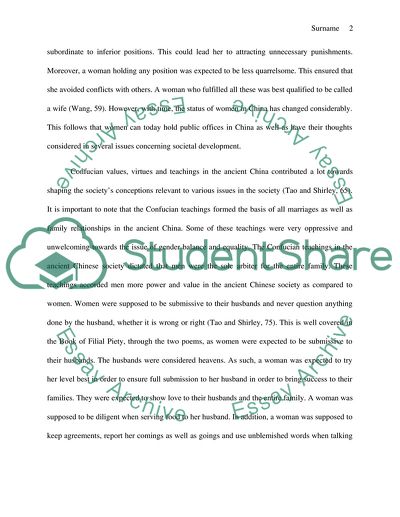Cite this document
(“The Different Scial Status for Ancient Chinese Women Research Paper”, n.d.)
The Different Scial Status for Ancient Chinese Women Research Paper. Retrieved from https://studentshare.org/history/1668375-the-different-scial-status-for-ancient-chinese-women
The Different Scial Status for Ancient Chinese Women Research Paper. Retrieved from https://studentshare.org/history/1668375-the-different-scial-status-for-ancient-chinese-women
(The Different Scial Status for Ancient Chinese Women Research Paper)
The Different Scial Status for Ancient Chinese Women Research Paper. https://studentshare.org/history/1668375-the-different-scial-status-for-ancient-chinese-women.
The Different Scial Status for Ancient Chinese Women Research Paper. https://studentshare.org/history/1668375-the-different-scial-status-for-ancient-chinese-women.
“The Different Scial Status for Ancient Chinese Women Research Paper”, n.d. https://studentshare.org/history/1668375-the-different-scial-status-for-ancient-chinese-women.


